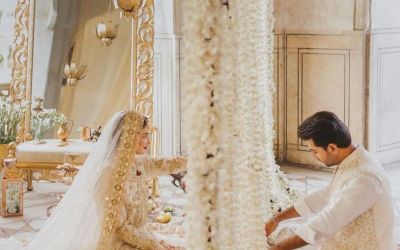Why Wali for Nikah Is a Must in UAE Islamic Marriages: A Detailed Overview
Table of Contents ▼
Wondering if the wali for nikah is mandatory or just tradition in UAE Islamic marriages? Here’s the answer.
Muslim couples planning their Islamic nikah in the UAE often ask if a wali (guardian) is required during the ceremony. This question touches on both religious beliefs and legal mandates, making it crucial to fully understand the role and necessity of a wali for nikah.
In this article, we will explore why the wali for nikah is compulsory in the UAE and what this means for couples preparing to marry.
Legal Requirement of Wali for Nikah in the UAE
The UAE’s Personal Status Law states that the presence and consent of a wali for nikah are mandatory for the validity of an Islamic marriage. This legal rule aligns with Islamic jurisprudence and is rigorously enforced across all emirates.
This means that a nikah without a wali’s consent and presence is not legally recognized in the UAE. Couples should ensure that this requirement is met to avoid legal issues.
Religious Significance of the Wali for Nikah
The wali’s role is deeply rooted in Islamic tradition, emphasizing family involvement in marriage decisions. The wali acts as a guardian who protects the bride’s rights, making sure her consent is informed and free.
This role ensures the bride’s welfare is prioritized and that the marriage contract is entered into with her full agreement, reflecting the seriousness of the nikah.
Who Can Act as a Wali for Nikah?
Islamic law and UAE regulations specify that the wali for nikah must:
- Be a Muslim male relative of the bride
- Be of sound mind and mature age
- Have good character and knowledge of Islamic principles
The order of priority for wali generally follows:
- Father (primary wali)
- Paternal grandfather
- Brother
- Paternal uncle
- Other male relatives on the father’s side
This priority reflects the Islamic emphasis on paternal family bonds and the protective responsibilities male relatives carry.
Wali’s Responsibilities During the Nikah Ceremony
The wali for nikah has several important duties during the Islamic marriage process:
- Giving formal consent on behalf of the bride
- Participating in negotiations regarding the mahr (dowry)
- Representing the bride’s interests in the marriage contract
- Attending the nikah ceremony physically to meet legal requirements
- Signing the marriage contract as a principal party
These roles are crucial to the religious and legal validity of the marriage.
Court-Appointed Wali: When Is It Necessary?
The UAE legal system allows for a court-appointed wali when the bride lacks a qualified guardian. A judge, or qadi, may serve as wali under circumstances such as:
- No living male relatives who qualify as wali
- The natural wali refusing consent unreasonably
- The wali being unavailable due to absence or incapacity
- The bride converting to Islam without Muslim male relatives
This ensures that the wali requirement doesn’t become a barrier to marriage while preserving Islamic tradition.
Can the Wali Requirement Be Waived?
Under UAE law, the wali for nikah requirement cannot be waived for Muslim women marrying in the country. This rule applies equally to:
- Emirati nationals
- Resident expatriates
- Visitors marrying in the UAE
The wali’s presence is a legal necessity and not an optional tradition.
Non-Muslim couples marrying under different laws may have different rules, but for Islamic marriages, the wali is always mandatory.
Legal Consequences of Marrying Without a Wali
Marrying without a wali in the UAE carries serious consequences:
- The marriage will not be officially registered with authorities
- Spouses lose the legal protections usually granted by marriage
- The marriage may not be recognized for visa or residency purposes
- Legal complications could arise if the marriage ends in separation or dispute
Understanding and fulfilling the wali requirement protects couples from these risks.
Honoring Tradition While Planning Your Nikah
Though legal requirements can seem complex, the nikah is a sacred celebration of love and faith. The wali for nikah symbolizes family involvement and protection as you begin your married life.
Easy Wedding offers expert guidance to help couples honor these traditions while navigating legal and logistical details. Whether you need help with documentation, family situations, or full wedding planning, our team ensures your nikah is seamless and memorable.
Ready to plan a UAE nikah that respects both tradition and law? Contact us to start your journey.


